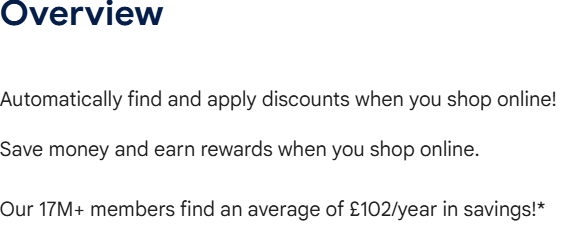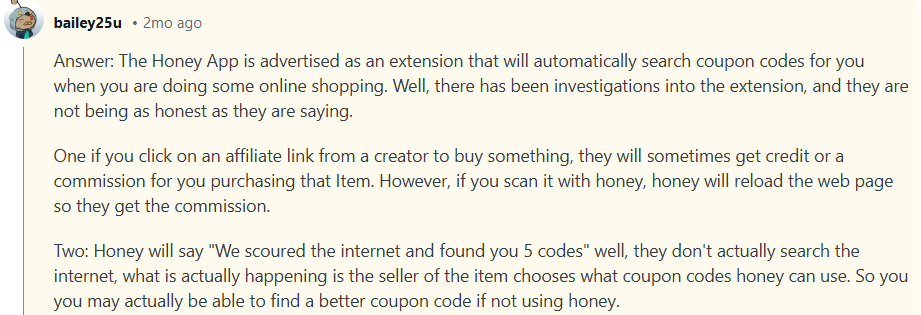
The Underbelly of Honey Affiliate Marketing
“If you haven’t found a single coupon from Honey, it means it’s a great deal,” said MrBeast, one of the most influential digital personalities of the decade. Fast forward a few years, and the internet is now buzzing with allegations of the Honey scam.
“Alleged” is the keyword here, but what started as a game-changing coupon system is now tangled in controversy, leaving influencers, users, and the affiliate marketing world disillusioned.
At its core, the Honey scam revolves around the universal love for discounts and the power of affiliate marketing. Who doesn’t love a good deal? Most of us scour the internet for the best promo codes, hoping to shave a few dollars off our purchases. So, when a seemingly foolproof tool—promoted by top influencers and creators across tech, fashion, and gaming—promised to do all the work for us, it was easy to buy into the hype.
But here’s the twist: The influencers who once endorsed Honey’s magic now question whether they unknowingly led themselves into a well-orchestrated trap. We will dig deeper to extract the nuances of the scam and expose big players’ cunning tactics in affiliate marketing.
Honey is where money is
Honey’s reputation isn’t just built on influencer promotions—it’s backed by PayPal, one of the biggest fintech giants in the world. In 2020, PayPal acquired Honey for $4 billion, instantly elevating its credibility and making it an easy sell for influencers to push onto millions of users.
So, what exactly is Honey? In simple terms, it’s a browser extension that automatically finds and applies available coupon codes at checkout, saving users the hassle of manually searching for discounts. Sounds great, right? A completely free tool that saves you money—what’s not to love?
Well, here’s the catch. If a product is free, you are the product. Honey doesn’t charge users a dime, yet it’s a multi-billion-dollar business. How? Data collection, affiliate commissions, and strategic partnerships. But before we get into that, let’s not forget the role of influencers in Honey’s rise to fame. YouTubers like MrBeast, Linus Tech Tips, Gamers Nexus, and Gibi ASMR were among the many who ran constant paid ads, making Honey a household name.

According to Honey’s own claims, over 17 million users have installed the extension, believing it to be a foolproof money-saving tool. But as more details surface, the question remains: Is Honey really about savings, or is there more to this story than meets the eye?
Influencers influenced, users downloaded, and Honey cashed in
Wait—so how exactly did Honey make money? This is where the alleged scam unfolds, revealing a two-pronged strategy that siphoned commissions away from influencers.
Affiliate marketing is a goldmine for creators, bloggers, and influencers. It’s simple: review a product, drop an affiliate link, and when a follower makes a purchase, the influencer earns a commission from the brand. It’s a well-oiled system—until Honey comes into play.
As the digital middleman, Honey overrides these affiliate links, cutting influencers out of the loop entirely. Instead of the influencer getting paid, Honey pockets the commission.
And the reason? Last-click attribution.
In affiliate marketing, last-click attribution means that the final touchpoint before a purchase gets 100% of the credit for the sale. If a user clicks an affiliate link but later clicks something else—a Honey pop-up offering a discount—Honey gets the commission instead.
YouTuber MegaLag broke down how this happens in real time. Honey’s pop-ups notify users of available (or even unavailable) coupons. The moment a user interacts with it—whether applying a discount or just clicking—the last-click attribution shifts to Honey, making them the official referrer. The influencer, who actually drove the purchase, walks away empty-handed.
What started as a tool to save users money slowly became a commission-hijacking machine, raising ethical concerns about how Honey operates in the affiliate marketing world.
Over-reliance on apps can cost a lot
Influencers weren’t the only ones taking the hit—users got caught in the crossfire, too. Honey was marketed as a time-saving extension that eliminated the hassle of hunting for discount coupons. However, as MegaLag’s video exposed, the extension often misled users about coupon availability.

Curious about how this “free” coupon-scouring service actually worked, I dug into Honey’s website. The company’s Help page openly states: “Honey makes commissions from our merchant partners.” These partners include big names like Reebok, Macy’s, and Sephora.

But here’s where it gets murky. A Reddit user speculated that sellers might be handpicking which coupon codes Honey displays, meaning users could unknowingly miss out on better deals elsewhere. If true, this flips the script: instead of empowering customers to save, Honey might be steering them toward deals that benefit its partnered merchants the most.
In short, the promise of effortless savings may come at the cost of smarter spending.
Lawsuits loom over Honey
PayPal Honey officially responded, “Honey follows industry rules and practices, including last-click attribution.”
Despite this, lawsuits are piling up. Gamers Nexus has filed a class action lawsuit against Honey, while LegalEagle’s lawsuit has been ongoing since December 29, 2024.
Yet, despite the growing allegations, no significant regulatory body has stepped in. Honey’s site continues to operate as usual. Whether this alleged scam holds up in court remains to be seen.
Cut to the chase
Creators, influencers, and users have witnessed the (alleged) Honey scam of the decade—one that intertwines affiliate marketing, coupon scouring, and unethical content overriding. More than 1,000 influencers and creators, including MrBeast and Emma Chamberlain, promoted the Honey extension. Yet, just a few years later, the market is slowly falling.

